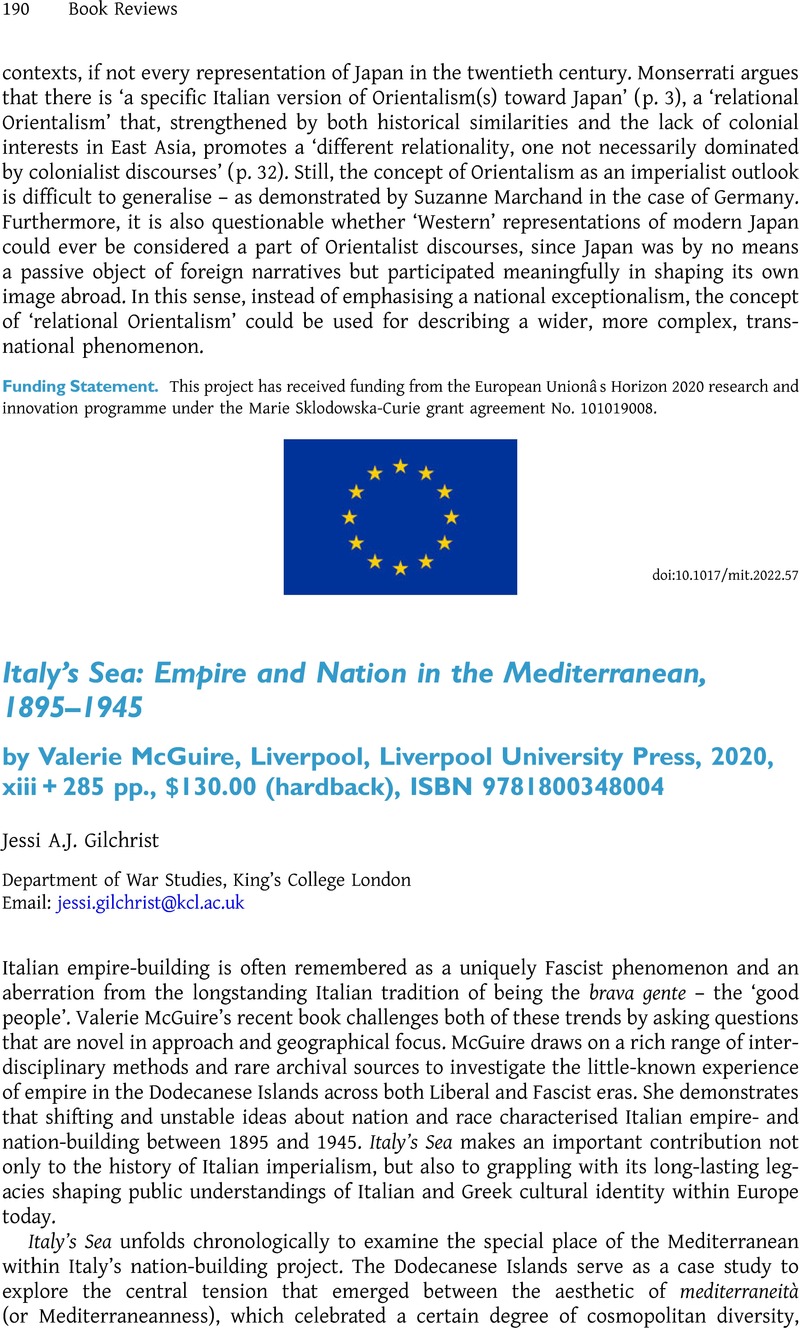No CrossRef data available.
Article contents
Italy's Sea: Empire and Nation in the Mediterranean, 1895–1945 by Valerie McGuire, Liverpool, Liverpool University Press, 2020, xiii + 285 pp., $130.00 (hardback), ISBN 9781800348004
Review products
Italy's Sea: Empire and Nation in the Mediterranean, 1895–1945 by Valerie McGuire, Liverpool, Liverpool University Press, 2020, xiii + 285 pp., $130.00 (hardback), ISBN 9781800348004
Published online by Cambridge University Press: 14 December 2022
Abstract
An abstract is not available for this content so a preview has been provided. Please use the Get access link above for information on how to access this content.

- Type
- Book Review
- Information
- Copyright
- Copyright © The Author(s), 2022. Published by Cambridge University Press on behalf of the Association for the Study of Modern Italy


